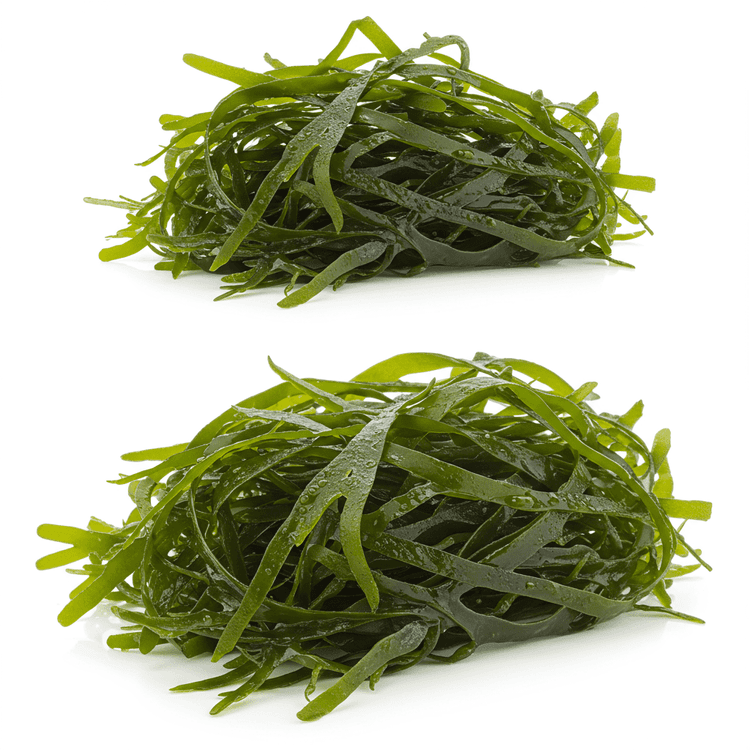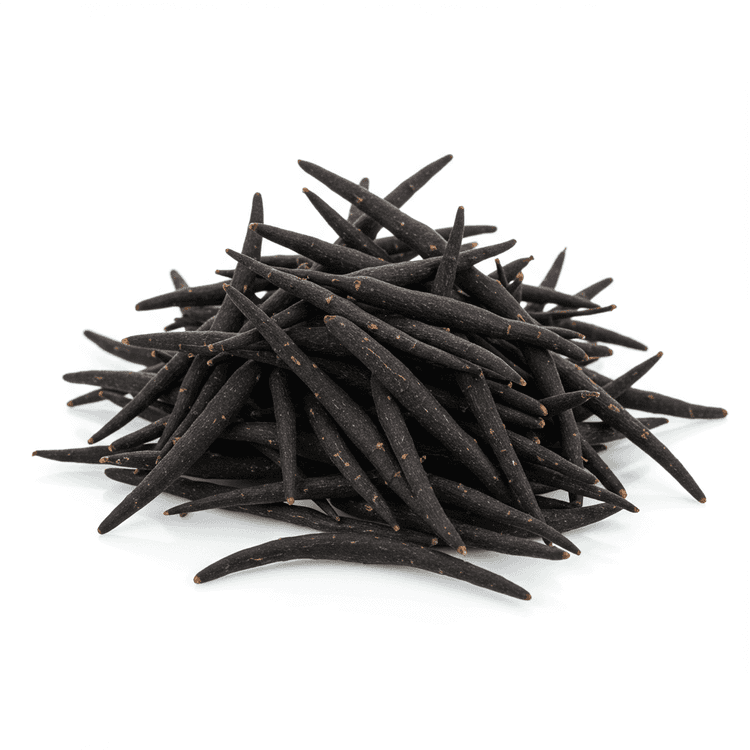
Seaweed
Seaweed is a nutrient-rich, edible marine plant that comes in various types such as nori, wakame, and kombu. Known for its briny, umami flavor and slightly chewy texture, seaweed is a versatile ingredient in global cuisines, particularly in Japanese, Korean, and coastal dishes. Its vibrant green, brown, or red hues add visual appeal to dishes, while its high iodine, vitamin, and mineral content make it a popular choice for health-conscious cooking. Seaweed is often used as a natural flavor enhancer and is prized for its ability to add depth to soups, salads, and snacks.
Common Uses
- Use seaweed sheets like nori to wrap sushi rolls or as a garnish for rice bowls and soups.
- Add dried seaweed such as wakame to miso soup or broths for a boost of umami flavor and nutrients.
- Incorporate seaweed flakes or powder into seasoning blends, salad dressings, or marinades for a savory, oceanic taste.
- Use kombu in dashi stock to create a rich base for Japanese soups, stews, and sauces.
- Snack on roasted seaweed sheets as a healthy, low-calorie alternative to chips or crackers.
- Mix chopped seaweed into salads, grain bowls, or stir-fries for added texture and a burst of salty flavor.
Nutrition (per serving)
Nutrition (per serving)
Calories
45.0kcal (2.25%)
Protein
5.0g (10%)
Carbs
9.0g (3.27%)
Sugars
0.5g (1%)
Healthy Fat
0.6g
Unhealthy Fat
0.2g
% Daily Value based on a 2000 calorie diet
Nutrition (per serving)
Calories
45.0kcal (2.25%)
Protein
5.0g (10%)
Carbs
9.0g (3.27%)
Sugars
0.5g (1%)
Healthy Fat
0.6g
Unhealthy Fat
0.2g
% Daily Value based on a 2000 calorie diet
Health Benefits
- Rich in iodine, supporting thyroid health and hormonal balance.
- Packed with antioxidants that help combat free radicals and reduce inflammation.
- High in vitamins and minerals, including vitamin K, calcium, and iron, promoting bone health and energy levels.
- Contains fiber, aiding digestion and supporting gut health.
- May help regulate blood sugar levels due to its unique polysaccharides.
- Low in calories and fat, making it a great addition to weight management diets.
Substitutes
Chefadora AI is here.
Experience smarter, stress-free cooking.
Storage Tips
Store dried seaweed in an airtight container in a cool, dry place away from direct sunlight to maintain its texture and flavor. For fresh seaweed, keep it refrigerated in a sealed container and use it within a few days. If you have leftover rehydrated seaweed, store it in the refrigerator and consume within 2-3 days. Freezing is also an option for longer storage, but ensure it's tightly sealed to prevent freezer burn.
Marnirni-apinthi Building, Lot Fourteen,
North Terrace, Adelaide, South Australia, 5000
Australia

